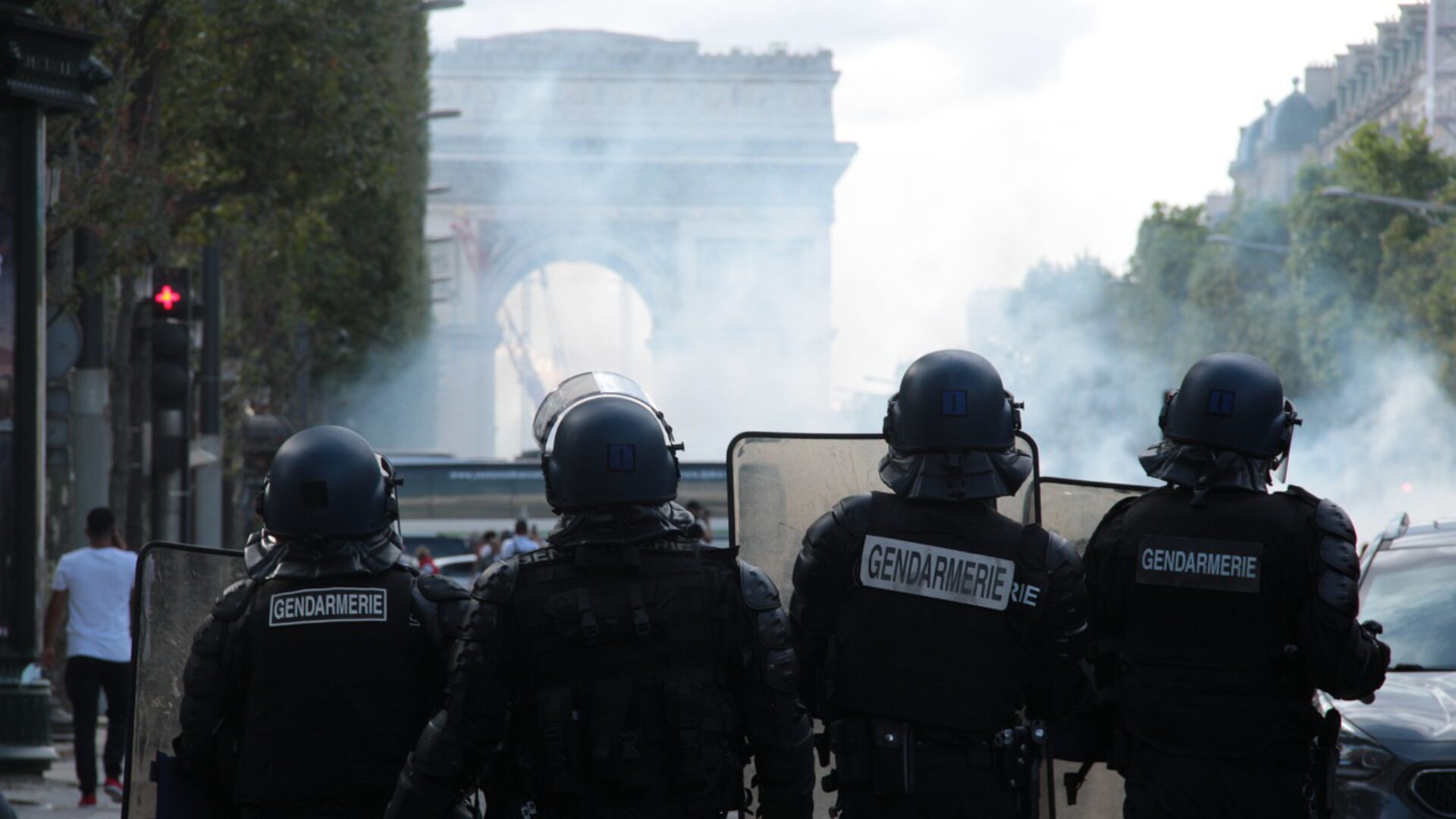As expected, the protests have been met with great police presence. At least 13,000 police officers had been deployed, with 5,500 of them in Paris streets.
For two months, peaceful and organised strikes took place. But in the last 10 days, they’ve taken a slightly more unsettled turn. Many streets have been seen dotted with fires and politician constituency office windows have been smashed in.
It doesn’t help that the record-breaking number of officers is heightening tensions on the ground, with lawyers writing to local newspapers to report unnecessary citizen arrests, injuries, and rough treatment of crowds.
In regards to the disruption of daily life, the strikes have affected bin collections, rail transport, air travel and schools. Numerous flights were cancelled in Bordeaux, Marseille, and Toulouse while uncollected trash lined the pavements of Paris streets.
As a seemingly normal life continued in and around the protests, a lack of bin collections wasn’t exactly an ideal situation. ‘The rats are having a party here,’ one Parisian said.
These factors, along with the unpredictability of the situation in the capital, caused Macron to cancel King Charles III’s State visit at the very last minute.
Speaking aptly of the meaning behind the national protests, French citizens have said they believe ‘the social state and social safety net [in France] is disappearing.’
In rural areas, citizens urge that it’s ‘not just about pensions.’ They urge the government to acknowledge how it has ‘abandoned’ their communities and pulled resources and services from their towns.
Hearing these statements, it shouldn’t be surprising that 90,000 students have also joined in demonstrations echoing their own version of what they feel is going wrong under Emmanuel Macron’s presidency.
Many are still scarred from their lived experiences of economic fragility during the COVID lockdowns. They now fear that moving forward, there will be no welfare state or support left for their parents – let alone themselves.
Emmanuel Macron has not budged on his stance despite the obvious discontent of his people. His public approval ratings have dropped by as much as 28 percent since he announced the policy reform.
Accepting the ‘unpopularity,’ he called upon his prime minister, Élisabeth Borne to address the nation. She said, ‘We have to find the right path… we need to calm down,’ while admitting there would likely be no changes to the policy.
Whether President Macron will survive another term hangs in the balance. Even so, there looks to be no obviously better-suited leaders on offer. French citizens could very well end up staying with the so-called devil they know.


















